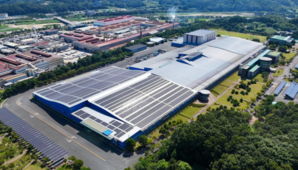
[News Space=Reporter seungwon lee] With five consecutive fatal accidents at POSCO E&C this year, the domestic construction industry is facing an unprecedented 'license revocation' crisis.
President Lee Jae-myung personally instructed relevant ministries to take strong measures, saying, "Consider all legal options, including revoking construction licenses and banning public bidding." If license revocation for a major construction company is realized, it would be the first such revocation in 28 years since the collapse of the Seongsu Bridge in 1994.
License revocation, the construction industry's biggest disciplinary action... a unique precedent: "Dong-A Construction, responsible for the collapse of Seongsu Bridge."
According to Article 83 of the current Construction Industry Basic Act, a construction license can only be revoked if "the public is endangered by faulty construction, intentional or grossly negligent." Industrial accidents resulting in death have never been grounds for license revocation.
In fact, the only known case was the 1997 revocation of Dong-A Construction & Industry's license for the 1994 Seongsu Bridge collapse, which killed 32 people. Recent major disasters, such as the 2022 collapse of the Hwajeong I-Park in Gwangju and the 2023 collapse of the Geomdan underground parking lot in Incheon, also resulted in only suspensions of business or restrictions on public bidding.
POSCO E&C indefinitely halts construction at 103 sites nationwide... Projects worth 5 trillion won also come to a halt.
Following a string of fatal accidents at POSCO E&C construction sites through the end of July, the company halted all construction at 103 sites nationwide. Major projects, including the "Seoripul" complex in Seocho-dong (costing 5.35 trillion won) and the Noryangjin District 1 complex (costing 1 trillion won), were affected, with the ripple effect spreading to those waiting to buy apartments, subcontractors, partner companies, and even the financial sector.
If the project is prolonged, large-scale economic damage is expected, including disruption of fair trade payments, loss of labor costs, delays in occupancy and building delivery, and damages due to breach of contract.
The repercussions and institutional issues of construction license cancellation
If its construction license is revoked, POSCO E&C will be barred from participating in new projects and its existing contract history will be deleted, effectively eliminating it from the large-scale public works market. While construction on sites where contracts have already been signed will be temporarily permitted until the provincial government completes the contract, a significant number of projects will be halted if the ordering party terminates the contract. While license revocation is theoretically subject to the discretion of the local government head, expedited deregistration is also possible upon request from relevant ministries and the government.
Meanwhile, the Ministry of Land, Infrastructure and Transport has introduced a "one-strike-and-you're-out" system starting in 2022, stipulating license revocation in the event of a serious accident, such as faulty construction or a fatality. However, both the legal community and the industry are cautious about whether the system will immediately apply to "worker deaths," arguing that "authoritative interpretation is needed." All eyes are on whether the unprecedentedly high disciplinary action, as directed by the president, will become a reality.
"The shock to the construction industry, subcontractors, water suppliers, and financial institutions is inevitable."
POSCO E&C is a leading domestic conglomerate, with orders reaching KRW 11.2 trillion in 2024 and KRW 5.03 trillion in the first half of 2025. If harsh sanctions, including license revocation, are implemented, its thousands of direct employees, hundreds of subcontractors nationwide, unsold apartments, and its entire operating and financial structure, which have been in the black, are expected to suffer a fatal blow.
A construction industry insider predicted, “If unprecedentedly strong disciplinary measures become a reality, tension and uncertainty will increase throughout the industry,” adding, “Legal disputes, including post-facto administrative lawsuits, are likely to be inevitable.”
























































